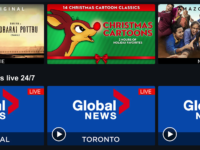With the introduction of the government’s plan to regulate Internet streaming services, Canadian Heritage Minister Steven Guilbeault has touted new rules that will require companies such as Netflix and Spotify to make mandatory payments in support of Canadian content. The government’s bill also paves the way for the companies to both tinker with what they show to subscribers, so as to increase the “discoverability” of Canadian content, and open their books to Canada’s telecom and broadcast regulator by granting access to confidential corporate information.
The Broadcasting Act blunder series continues today with my recent Hill Times op-ed which notes that although Mr. Guilbeault argues that the changes are long overdue and merely establish a level playing with conventional broadcasters, much of the policy that underlies the new bill rests on shaky ground ((prior posts in the Broadcasting Act Blunder series include Day 1: Why there is no Canadian Content Crisis, Day 2: What the Government Doesn’t Say About Creating a “Level Playing Field”, Day 3: Minister Guilbeault Says Bill C-10 Contains Economic Thresholds That Limit Internet Regulation. It Doesn’t, Day 4: Why Many News Sites are Captured by Bill C-10), Day 5: Narrow Exclusion of User Generated Content Services, Day 6: The Beginning of the End of Canadian Broadcast Ownership and Control Requirements).











